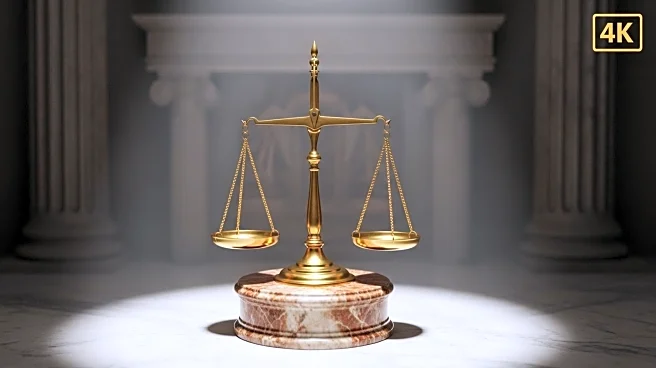What's Happening?
Chief Justice John Roberts has temporarily upheld the Trump administration's decision to freeze nearly $5 billion in foreign aid. This decision comes as part of an emergency appeal to the Supreme Court, following a lower court's ruling that the withholding of funds was likely illegal. President Trump had previously announced his intention not to spend the congressionally approved aid, invoking a rarely used presidential authority known as a 'pocket rescission.' This allows a president to request Congress not to spend approved funds towards the end of a budget year, effectively bypassing legislative approval. The Supreme Court's temporary order suggests a potential reversal of the lower court's decision, which had required congressional approval for the funding freeze. The case continues to unfold, with the plaintiffs expected to respond to the administration's appeal shortly.
Why It's Important?
The decision to freeze foreign aid has significant implications for U.S. foreign policy and international relations. The Trump administration's stance on reducing foreign aid aligns with its broader policy of fiscal conservatism, despite potential negative impacts on America's global reputation. The aid freeze could affect food supplies and development programs in foreign countries, potentially straining diplomatic relations. Domestically, the case raises critical questions about the balance of power between the executive and legislative branches, particularly regarding the president's authority to unilaterally alter congressionally approved budgets. The outcome of this legal battle could set a precedent for future executive actions concerning budgetary decisions.
What's Next?
The Supreme Court has asked the plaintiffs to respond to the Trump administration's appeal, indicating that further legal proceedings are imminent. The case is expected to continue through the courts, potentially reaching a definitive ruling on the legality of the president's use of pocket rescission. The decision could prompt reactions from Congress, particularly if the court upholds the administration's actions, potentially leading to legislative efforts to clarify or restrict presidential budgetary powers.
Beyond the Headlines
This case highlights the ongoing tension between the executive and legislative branches over budgetary control. It underscores the broader debate about the scope of presidential power and its implications for democratic governance. The legal proceedings may also influence future administrations' approaches to foreign aid and fiscal policy, potentially reshaping U.S. engagement with the international community.









